My Recipe for Malai Tea Cake with Orange, Pistachio & Rose

Like every family, special occasions in Kratika Khatri’s home demands cake. Her family special is an uncomplicated malai cake with simple ingredients, that generously also allows for variations. Here, she presents both the original, and her personal interpretation with orange, pistachio and rose.
In an annual Diwali cleaning, my mother sat down to sort out old photographs and videotapes. One by one, everyone gathered around her and started to reminisce. Images of celebrations, birthdays, anniversaries, and weddings were plentiful, mostly of the kids hovering over cake. Even today, special occasions conclude with a cake-cutting, with or without the hovering children.
Special occasions in the author’s family conclude with a cake-cutting ceremony, with or without the hovering children.
The handwritten recipes collated by the author’s mother and aunt.
One particular cake was present in all celebrations at home. It was an uncomplicated and ordinary malai cake, loved by all because of its versatility. The adults loved it because it was frosting-free; the kids relished it simply because it was a delicious cake. This cake, made with simple ingredients found in every Indian household, yielded different results depending on the sequence of mixing. It was, however, without exception, always nostalgic and delectable.
Over the years, we have experimented with countless variations of the malai cake, from a plain vanilla to a decadent double-layered cream cheese and jam version. On my last trip back home for my parent’s anniversary, I decided to reimagine our family favourite. Given my newfound obsession with rose tea cakes, I baked an orange, pistachio, and rose malai cake. The result? A fragrant, tender tea cake that surpassed any I’d had in coffee shops—both hauntingly familiar and refreshingly new.
This recipe still sits in my mother’s kitchen drawer, handwritten in an old register; a quiet heirloom passed down through memories, flavours and time. Every time I stand in the kitchen, holding that register, I am reminded that food isn't just something we eat or cook. It is something we inherit, adapt and carry forward. Like our family's malai cake, it continues to evolve with every person it reaches, whether as a warm slice on a plate or as a handwritten recipe passed down from a mother to her daughter.
RECIPE FOR MALAI CAKE
Ingredients
1 cup malai
1 cup powdered sugar
2 cups all purpose flour
1 tsp baking powder
1/2 tsp baking soda
1 tsp vanilla essence
1 tbsp ghee
(Add for the citrusy rose and pistachio version)
Juice of 5 oranges
Chopped pistachios
Juice of 1 lemon
Dried rose petals
Method
Preheat the oven to 180°C (350°F). Line a cake tin with parchment paper and set aside.
In a mixing bowl, whisk together the sugar and malai until smooth and creamy.
Add the juice of 2 oranges and half a lemon, mixing well to combine.
Sift in the all-purpose flour, baking powder, and baking soda. Gently fold the dry ingredients into the wet mixture until no lumps remain. If the batter feels too thick, add a little milk to adjust the consistency.
Stir in the chopped pistachios and ghee, then pour the batter into the prepared cake tin.
Bake for 40 minutes at 180°C. After 7–10 minutes, once the top turns lightly golden, turn off the top heating function to prevent over-browning.
While the cake bakes, prepare the orange syrup: In a small saucepan, heat the juice of 3 oranges, some zest, half a lemon and 1 tablespoon of sugar. Simmer until slightly thickened.
Once the cake is baked and slightly cooled, poke small holes across the surface. Pour the warm orange syrup over the cake, allowing it to soak in. Garnish with dried rose petals.
Let the cake cool completely before serving.
Kratika Khatri is a researcher trained as an art historian exploring the intersections of food, art and material culture in South Asia.
ALSO ON GOYA
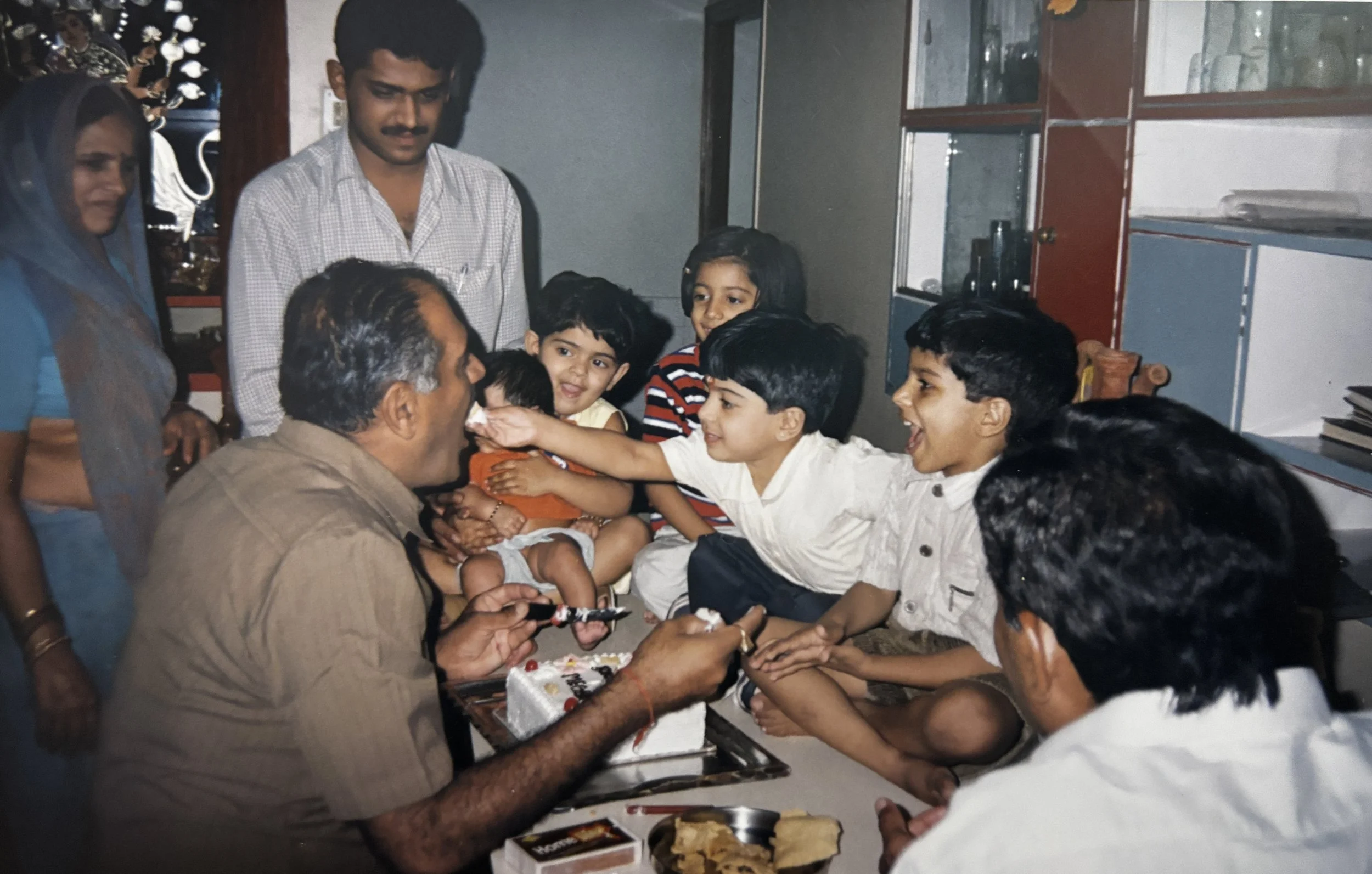


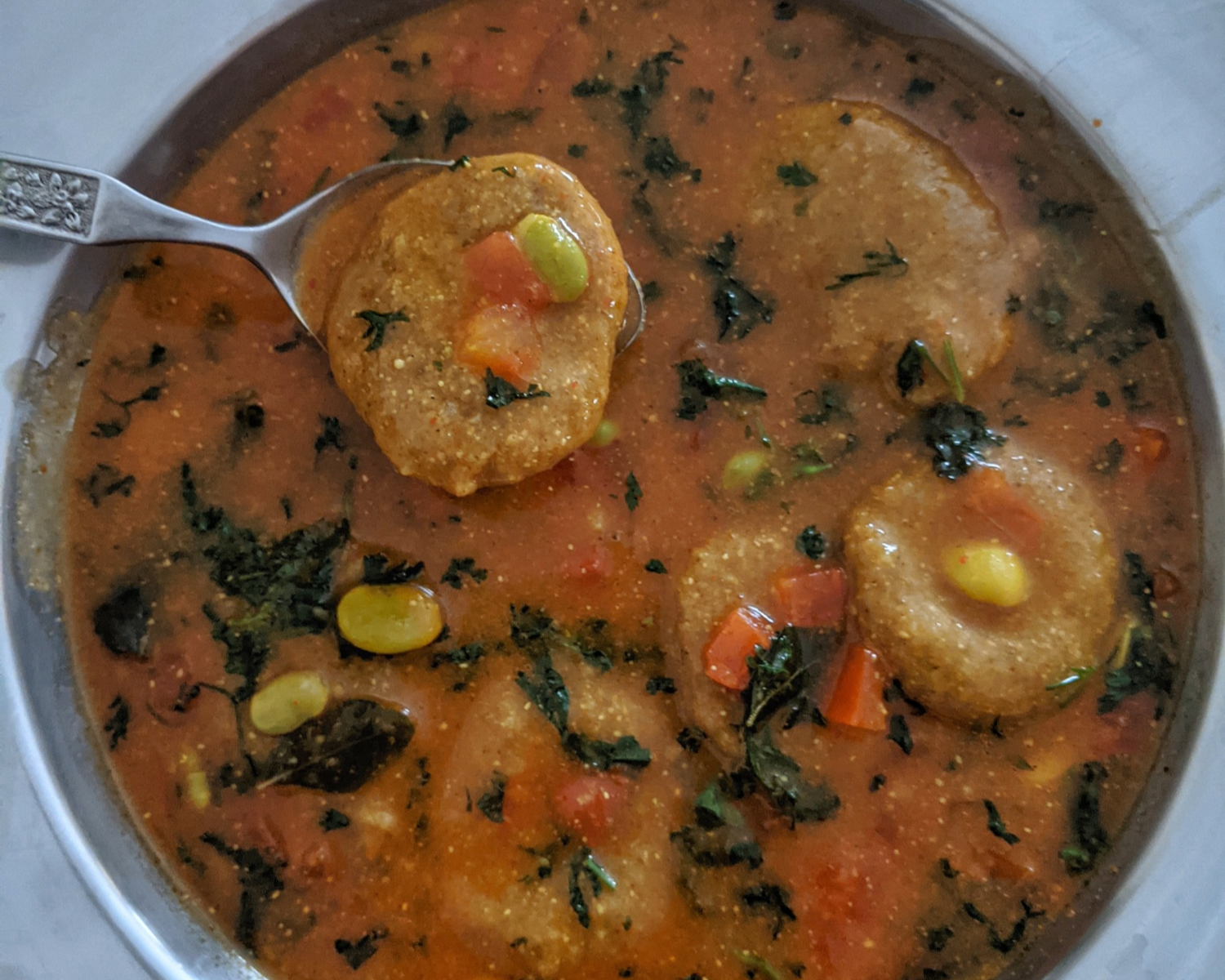
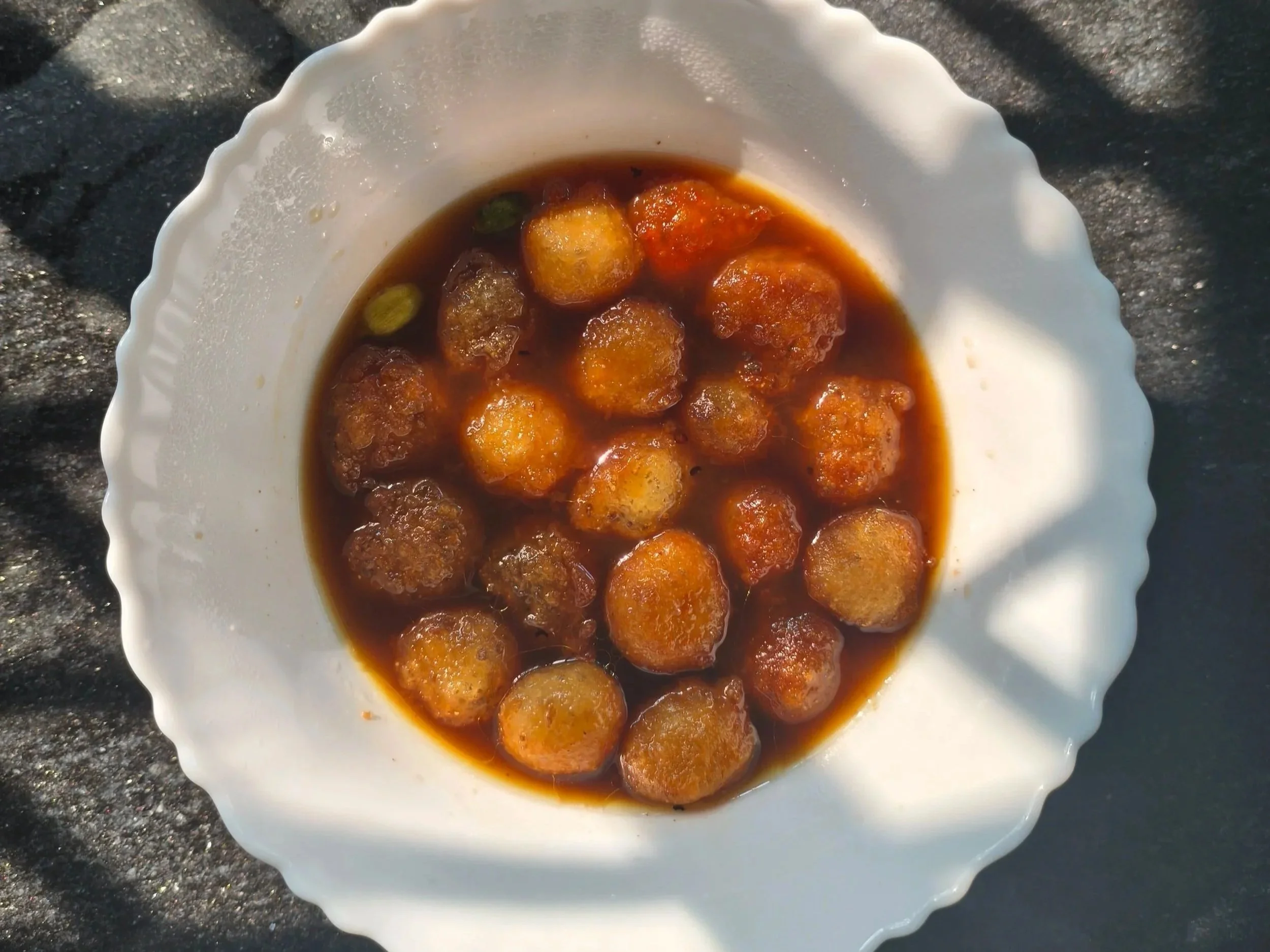
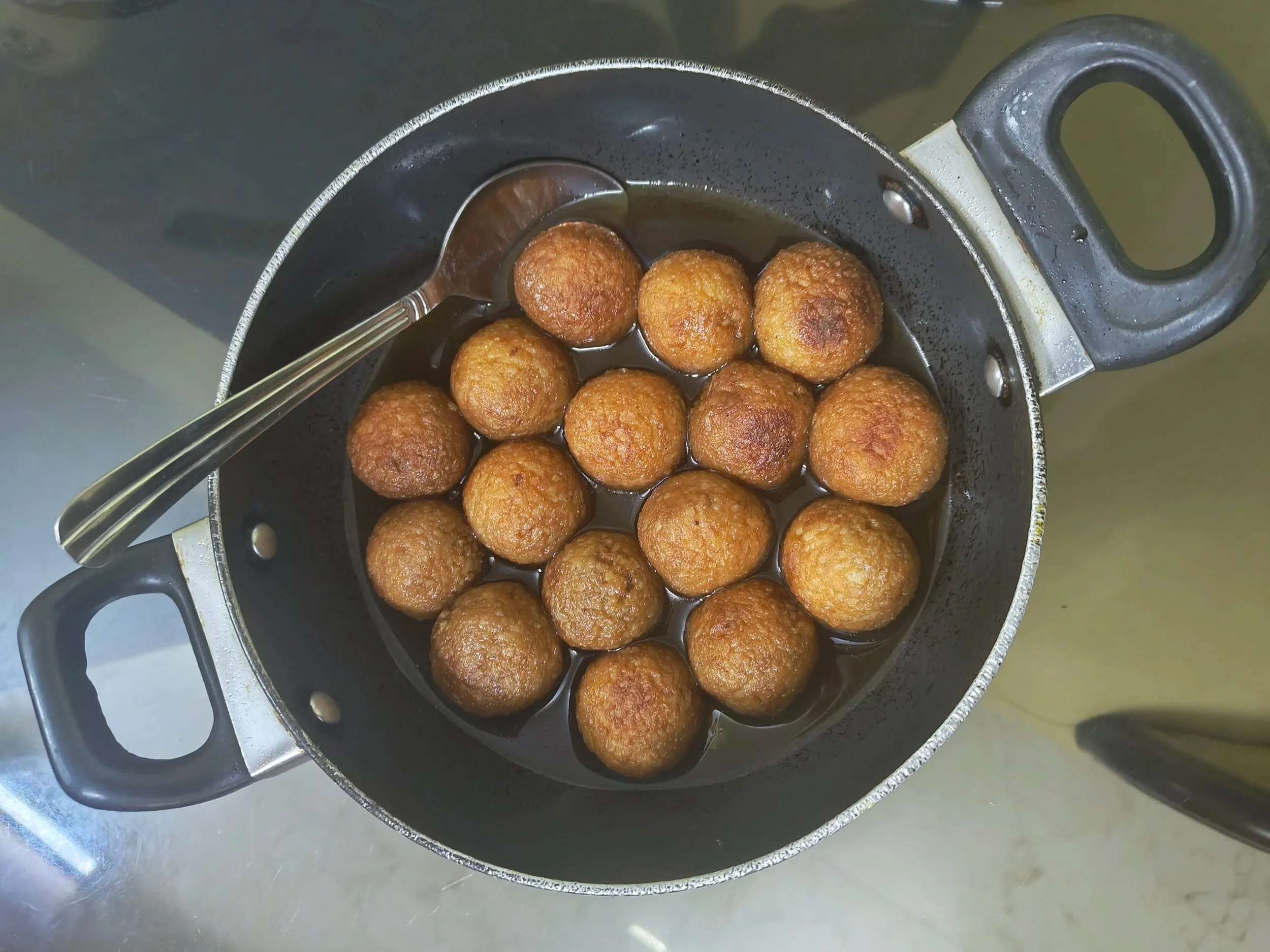

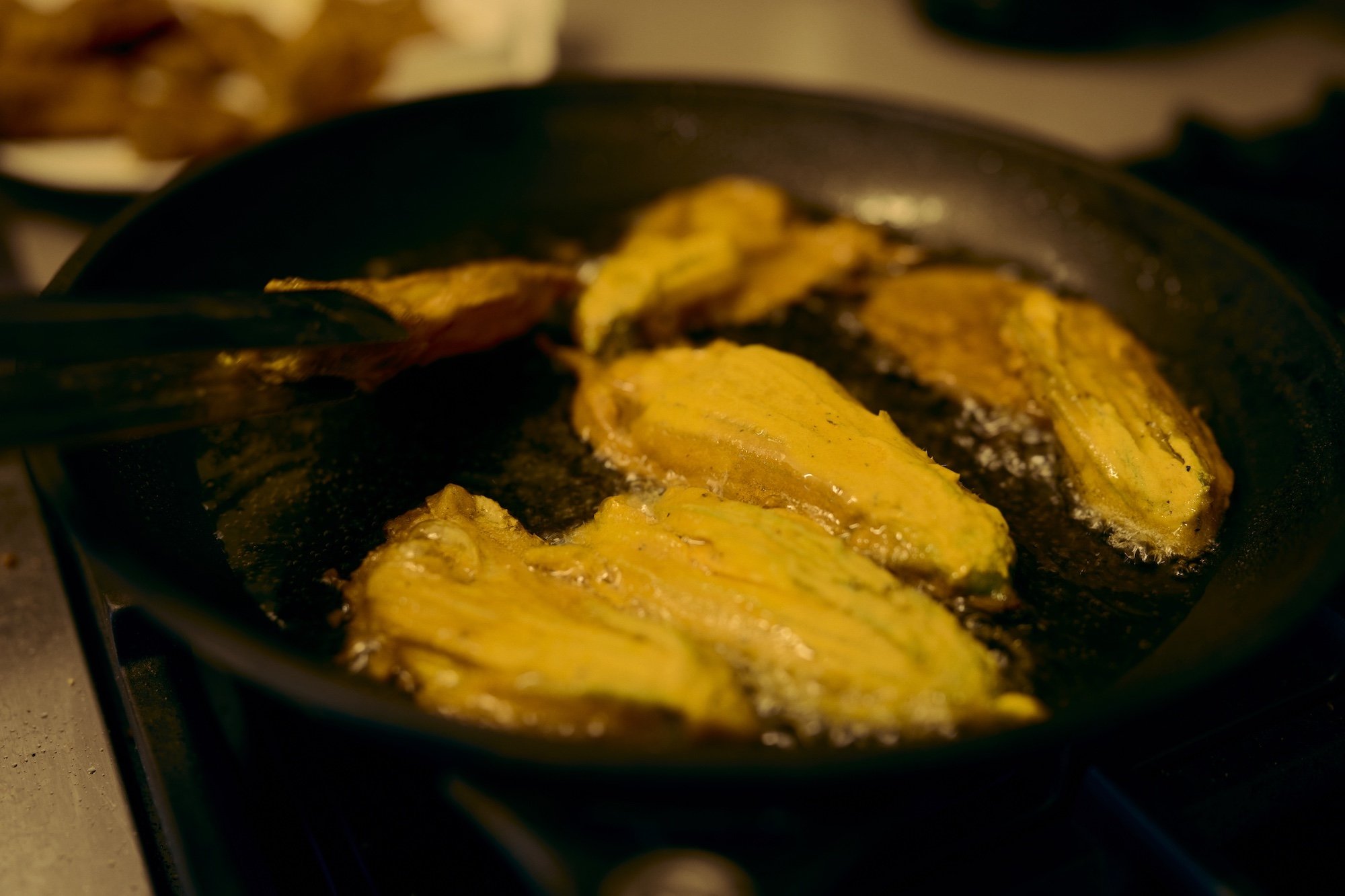
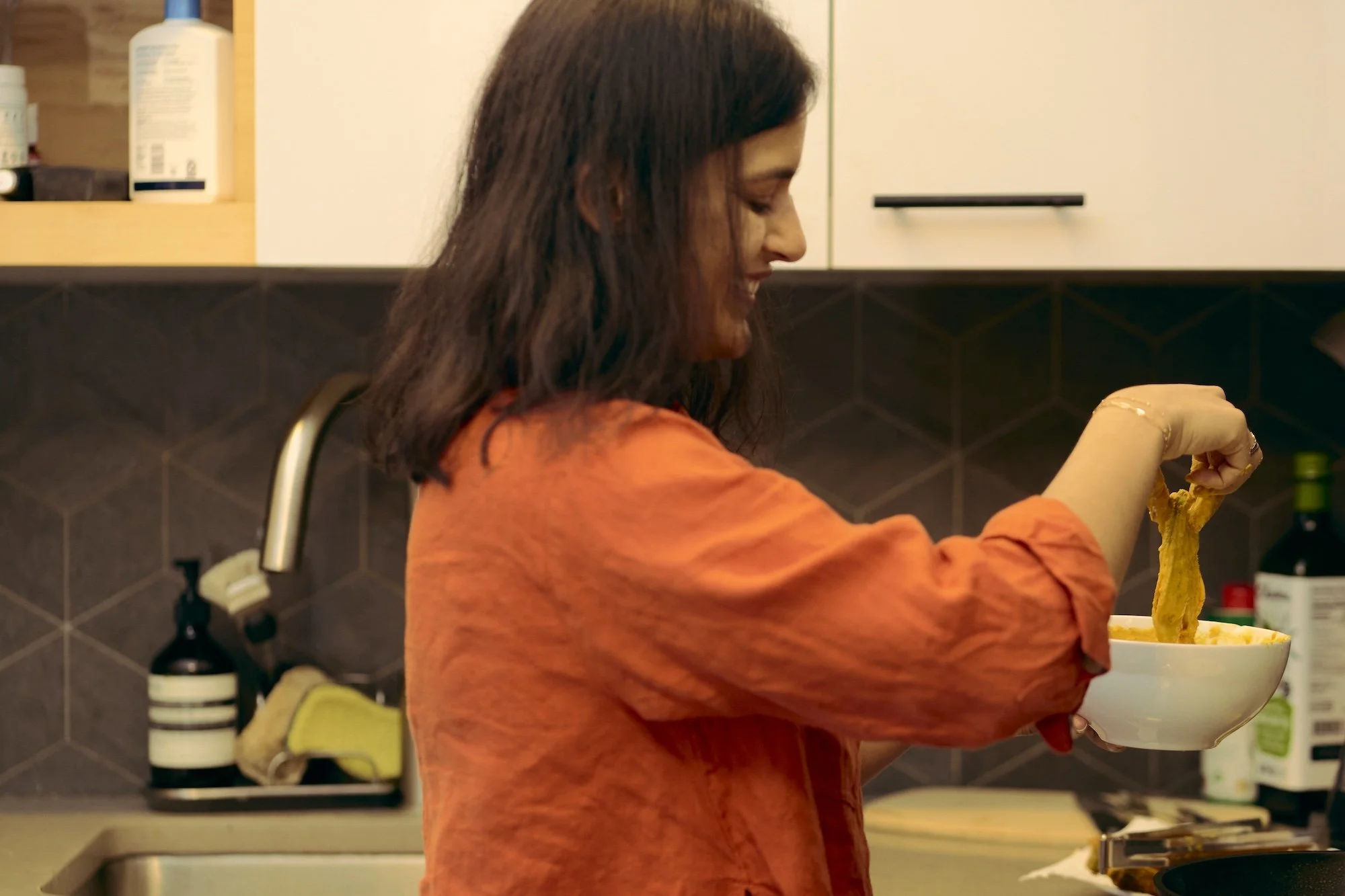
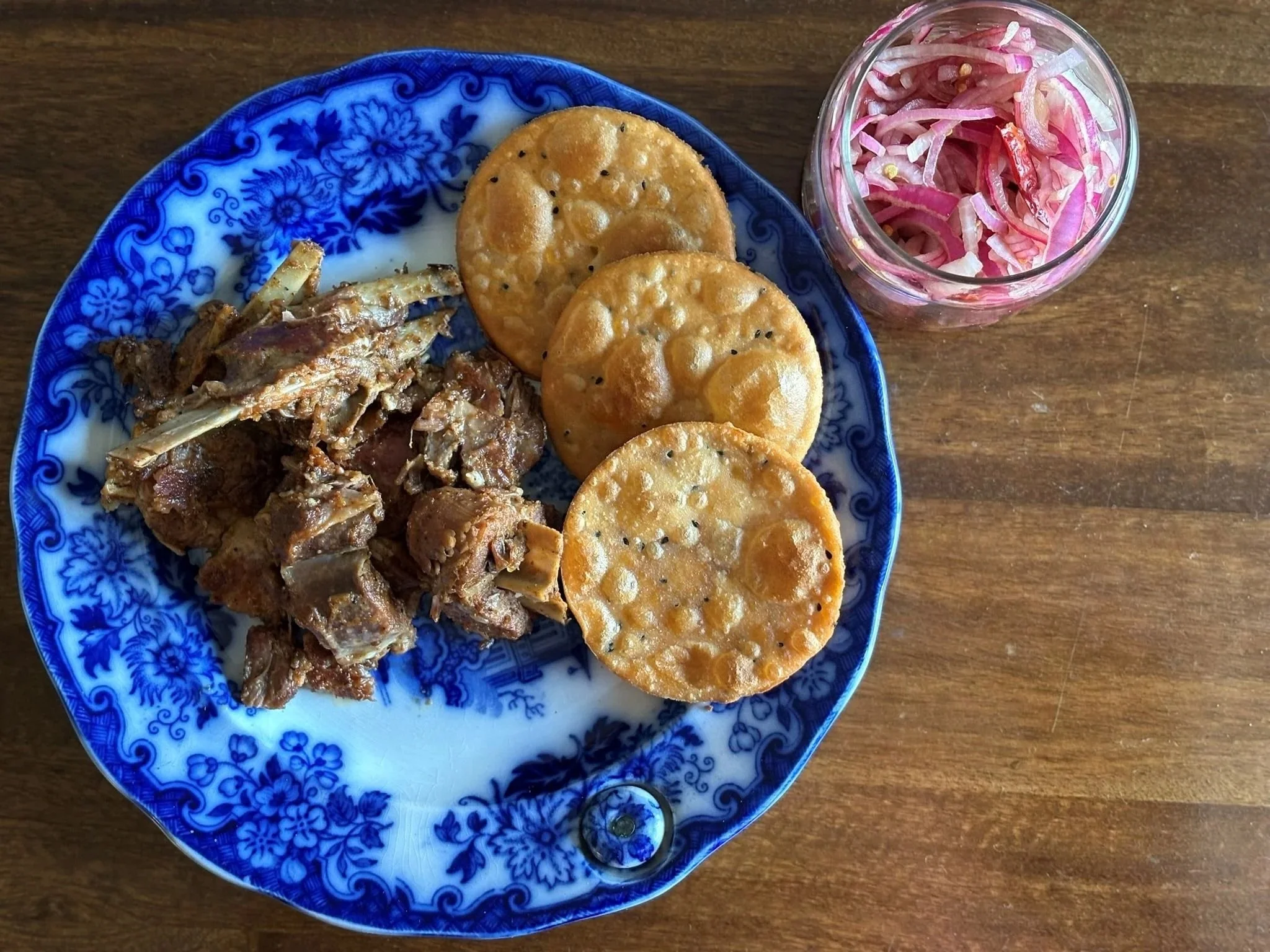
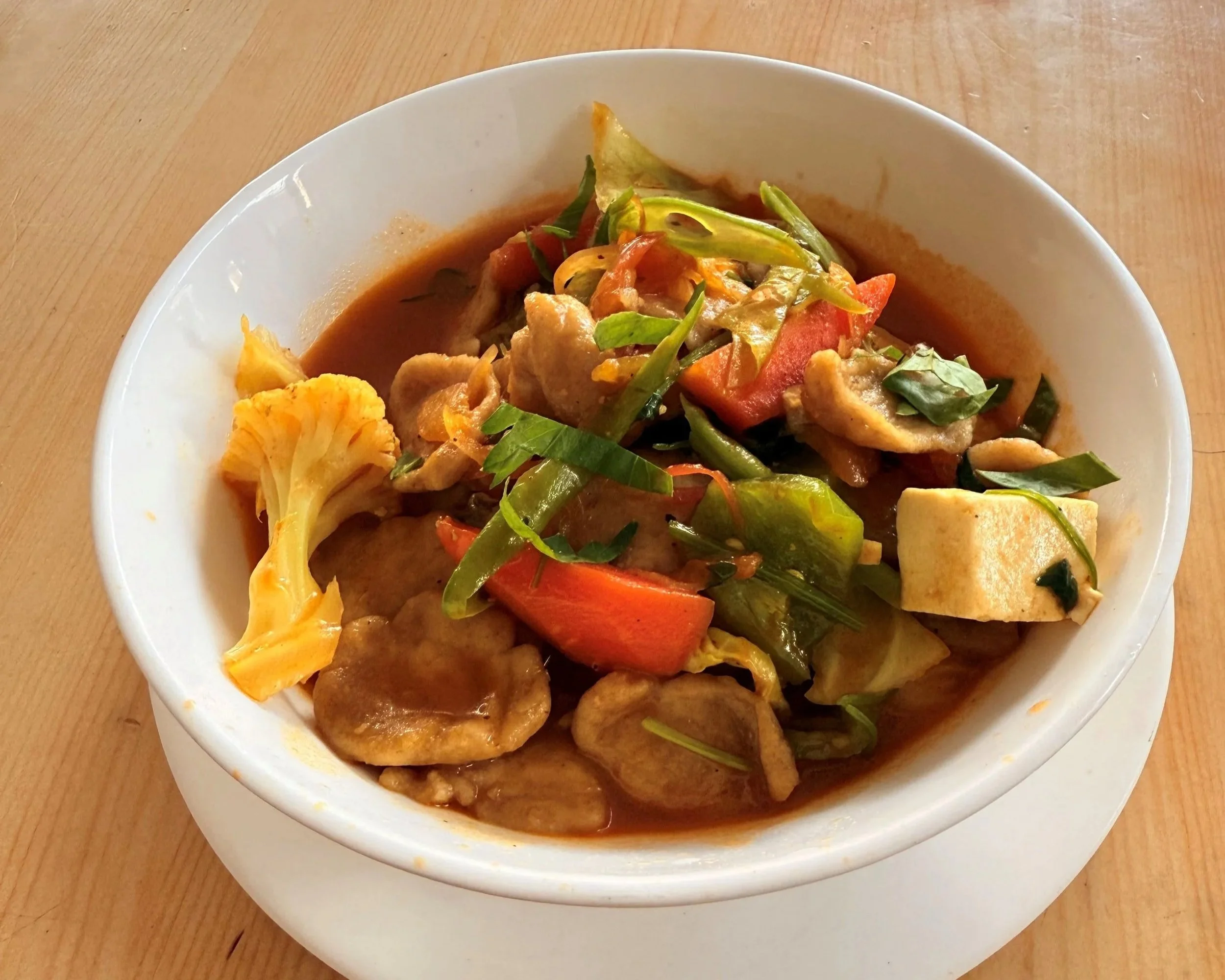
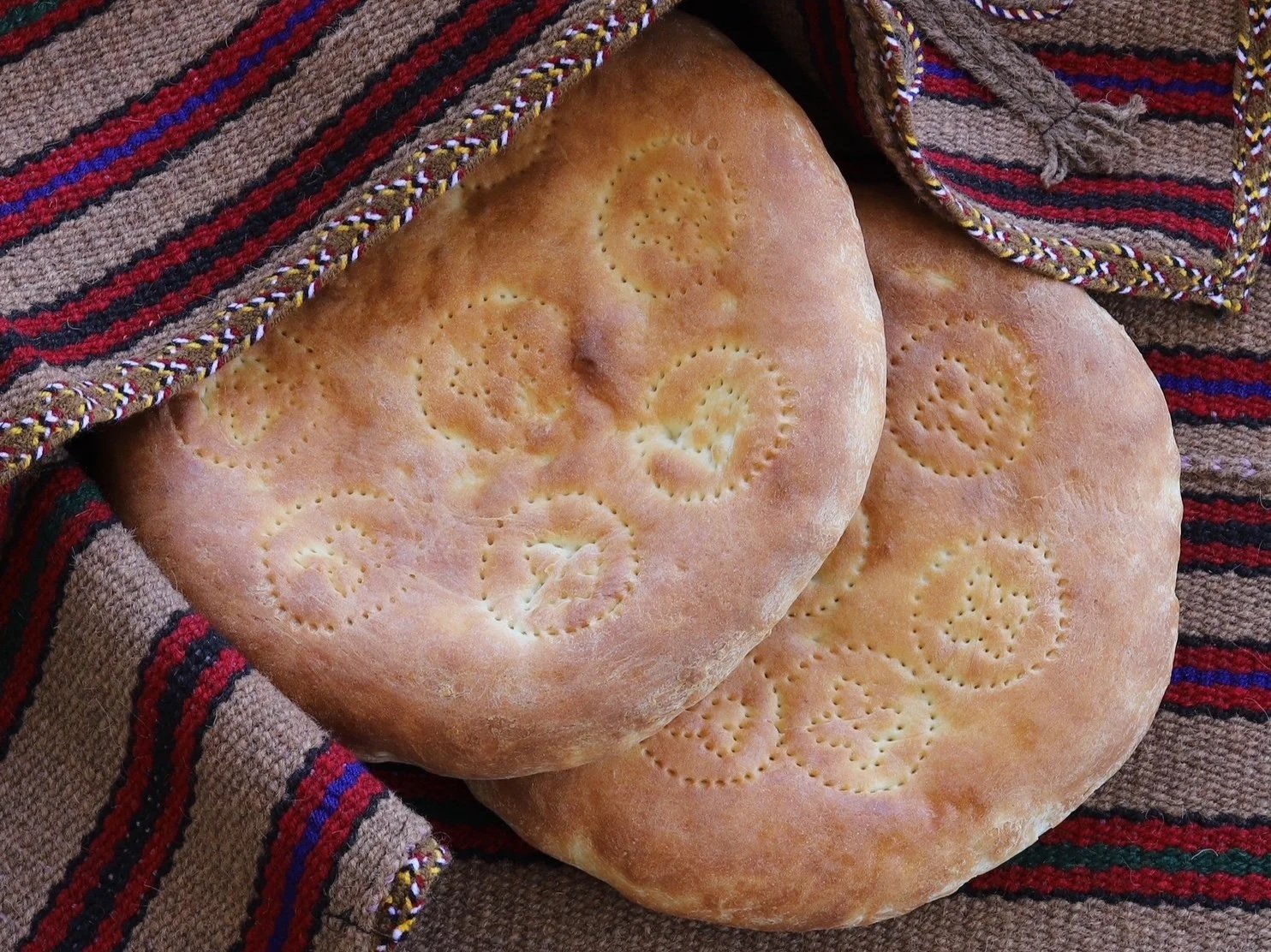
Neo-nomad cuisine of Central Asia | Terrence Manne